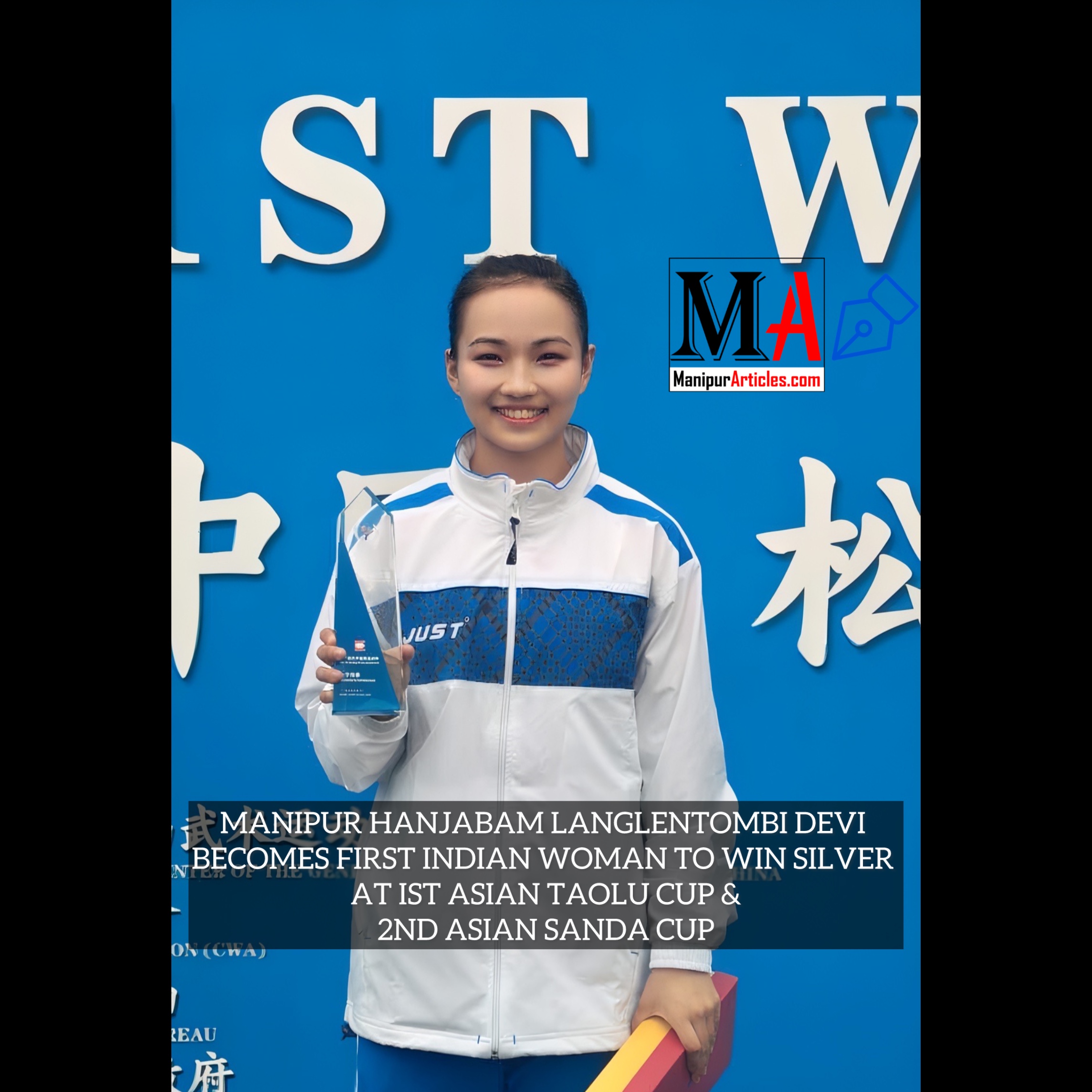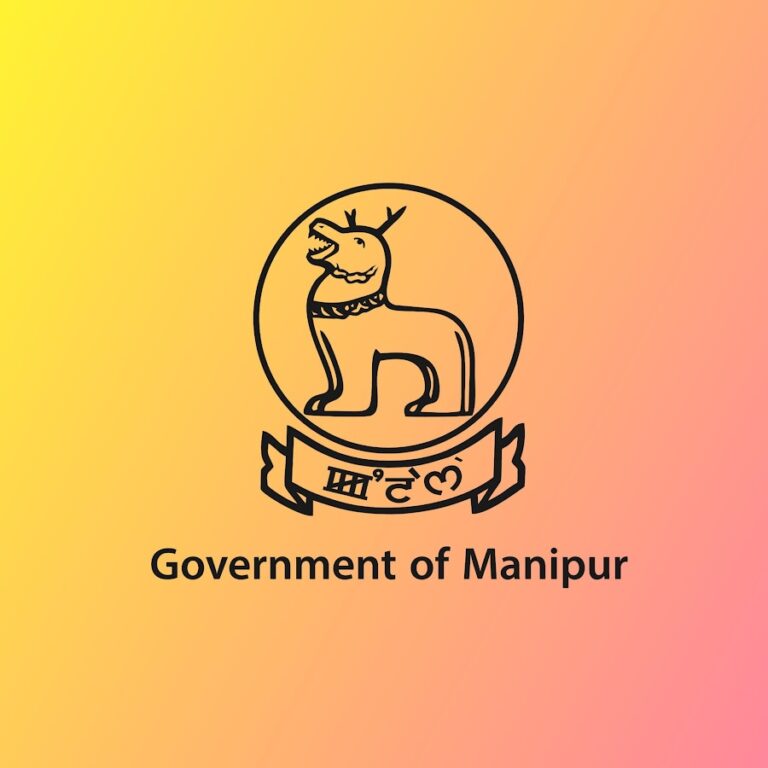Hanjabam Langlentombi Devi Makes History: First Indian Woman to Win Silver in Nanquan at Asian Taolu Cup
Short Summary
Hanjabam Langlentombi Devi of Manipur has etched her name in the history books by becoming the first Indian woman to win a silver medal in the Nanquan event at the 1st Asian Taolu Cup and 2nd Asian Sanda Cup. This continental-level victory is not only a proud moment for India and Manipur but also a giant leap for Indian Wushu on the international stage. Her inspiring performance has created a wave of motivation among aspiring martial artists across the country.
Breaking Barriers: Hanjabam Langlentombi Devi Shines at Asian Wushu Championships
Who is Hanjabam Langlentombi Devi?
Let’s start with the woman behind the medal. Hanjabam Langlentombi Devi is a Wushu athlete from Manipur, a state known for producing world-class sports talent. Quietly determined and fiercely disciplined, Langlentombi has trained for years to perfect her craft in Wushu Taolu, particularly the Nanquan discipline — a southern style of Chinese martial arts that demands explosive power, grace, and precision.
Her silver medal win wasn’t just a product of natural talent — it was earned through countless hours of practice, sacrifices, and an unshakeable focus on her goal.
Historic Win at the Asian Taolu and Sanda Cups
Held recently, the 1st Asian Taolu Cup and the 2nd Asian Sanda Cup brought together the best Wushu practitioners from across Asia. While India has made its presence felt in international Wushu before, no Indian woman had ever clinched a silver medal in the Nanquan event — until Langlentombi’s powerful performance changed the narrative.
She showcased her mastery over fast-paced footwork, powerful stances, dynamic hand techniques, and perfect timing, which won her a silver medal amidst fierce competition.
What is Nanquan, Anyway?
Wondering what exactly is Nanquan?
Imagine a martial art that blends strength with speed, and discipline with dramatic flair. Nanquan, or “Southern Fist,” is a form of Wushu that emphasizes strong, grounded stances, explosive hand techniques, and loud, forceful energy releases (fasheng). Unlike Taichi or soft styles, Nanquan is more intense, often compared to a storm hitting the ground — short, fast, and powerful.
Langlentombi’s silver medal performance in this category is a testament to her physical endurance and mental focus.
Why This Win Matters for Indian Wushu
This victory is bigger than just one medal.
1. First of its Kind
Langlentombi’s silver is India’s first-ever in Nanquan at this level. That’s a major milestone for women’s Wushu in India.
2. Recognition on the Asian Stage
Competing against strong martial arts powerhouses like China, Vietnam, and Iran, Langlentombi’s win signals that India is now ready to compete at the top tier of Asian martial arts.
3. Inspiration for Youth
Her win has lit a fire in many young girls across India, especially from rural and northeastern regions, where martial arts are increasingly seen as a path to both empowerment and international recognition.
🇮🇳 Manipur: The Cradle of Champions
It’s no coincidence that Langlentombi comes from Manipur — a state that has produced stars like Mary Kom (boxing), Mirabai Chanu (weightlifting), and Bala Devi (football). With its deep-rooted martial traditions, disciplined sports culture, and passion for excellence, Manipur continues to nurture talent that competes — and wins — on the world stage.
Langlentombi’s achievement further cements the state’s reputation as India’s powerhouse of sports, especially for women athletes.
The Journey Behind the Victory
Behind every podium moment is a story filled with struggle, grit, and sacrifice.
Langlentombi’s journey wasn’t easy. She trained through physical exhaustion, injuries, limited financial support, and the pressure of performing in a discipline that’s still finding mainstream recognition in India. But she never gave up.
Her success is not just hers alone — it belongs to her coaches, her family, her state, and the nation.
Representation and Role Model Impact
Do you know what’s even more powerful than a medal? Representation.
Langlentombi Devi has become a symbol of possibility. She represents every girl who dreams beyond her village. Every athlete who trains without proper facilities. Every warrior who refuses to quit.
She has shattered the myth that Indian women cannot excel in combat sports, and in doing so, opened the floodgates for many more.
What the Experts Are Saying
Indian Wushu Federation officials, athletes, and coaches have hailed her as a “trailblazer”.
“This is a turning point. Langlentombi’s medal will be remembered as the day Indian women stepped into elite Wushu Taolu,” said one senior coach at the Wushu Association of India.
Even sports commentators are calling her performance a milestone in Indian martial arts history.
What’s Next for Langlentombi Devi?
With her current momentum, the sky’s the limit.
- World Wushu Championships? Absolutely within reach.
- Asian Games 2026? She’ll be one to watch.
- Olympic inclusion of Wushu? If it happens, Langlentombi could lead the charge.
She’ll likely continue rigorous training and may also serve as an ambassador for promoting Wushu among young girls.
The Takeaway: A National Win
This isn’t just a silver medal — it’s a golden opportunity for Indian Wushu to shine globally.
Langlentombi’s achievement should encourage:
- More investment in Wushu infrastructure
- Better coaching programs for girls
- Recognition for northeastern sportspersons
- Media attention on non-mainstream sports
India’s sports diversity is vast — and Langlentombi has just widened that spectrum.
Final Thoughts
In a world obsessed with cricket, sometimes the quietest victories make the loudest impact. Hanjabam Langlentombi Devi didn’t just win silver—she won respect, recognition, and a place in history. Her legacy is only just beginning.
FAQs
1. Who is Hanjabam Langlentombi Devi?
She is a Wushu athlete from Manipur, India, and the first Indian woman to win a silver medal in the Nanquan event at the Asian Taolu Cup.
2. What is Nanquan in Wushu?
Nanquan is a southern-style Wushu martial art known for powerful, explosive movements, grounded stances, and strong hand techniques.
3. Why is this medal significant for India?
It marks India’s first silver in Nanquan by a woman at the Asian level and boosts Indian Wushu’s global recognition.
4. Where is Langlentombi from?
She hails from Manipur, a northeastern Indian state known for producing world-class athletes.
5. How will this impact young athletes?
Her success has inspired countless young athletes, especially girls, to pursue martial arts and break barriers in sports.



